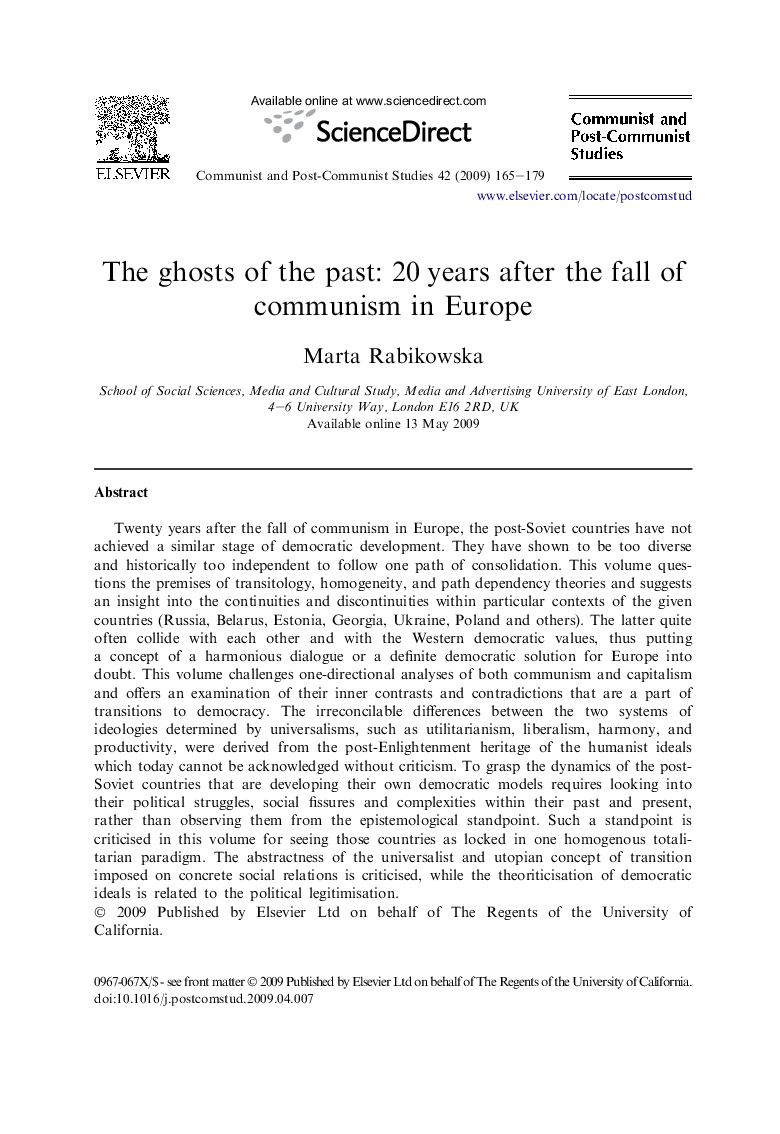| Article ID | Journal | Published Year | Pages | File Type |
|---|---|---|---|---|
| 1046551 | Communist and Post-Communist Studies | 2009 | 15 Pages |
Twenty years after the fall of communism in Europe, the post-Soviet countries have not achieved a similar stage of democratic development. They have shown to be too diverse and historically too independent to follow one path of consolidation. This volume questions the premises of transitology, homogeneity, and path dependency theories and suggests an insight into the continuities and discontinuities within particular contexts of the given countries (Russia, Belarus, Estonia, Georgia, Ukraine, Poland and others). The latter quite often collide with each other and with the Western democratic values, thus putting a concept of a harmonious dialogue or a definite democratic solution for Europe into doubt. This volume challenges one-directional analyses of both communism and capitalism and offers an examination of their inner contrasts and contradictions that are a part of transitions to democracy. The irreconcilable differences between the two systems of ideologies determined by universalisms, such as utilitarianism, liberalism, harmony, and productivity, were derived from the post-Enlightenment heritage of the humanist ideals which today cannot be acknowledged without criticism. To grasp the dynamics of the post-Soviet countries that are developing their own democratic models requires looking into their political struggles, social fissures and complexities within their past and present, rather than observing them from the epistemological standpoint. Such a standpoint is criticised in this volume for seeing those countries as locked in one homogenous totalitarian paradigm. The abstractness of the universalist and utopian concept of transition imposed on concrete social relations is criticised, while the theoriticisation of democratic ideals is related to the political legitimisation.
